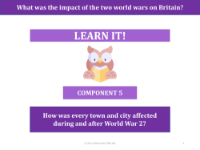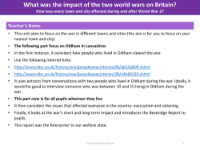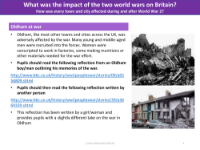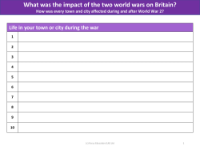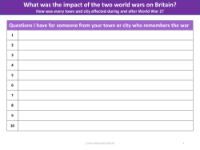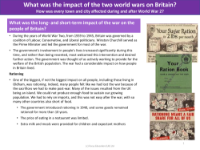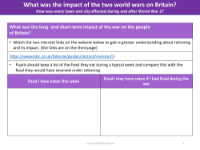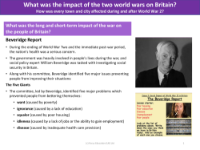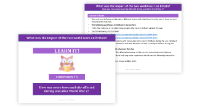What was the short and long-term impacy of was on the British people - Evacuation of people - Year 6
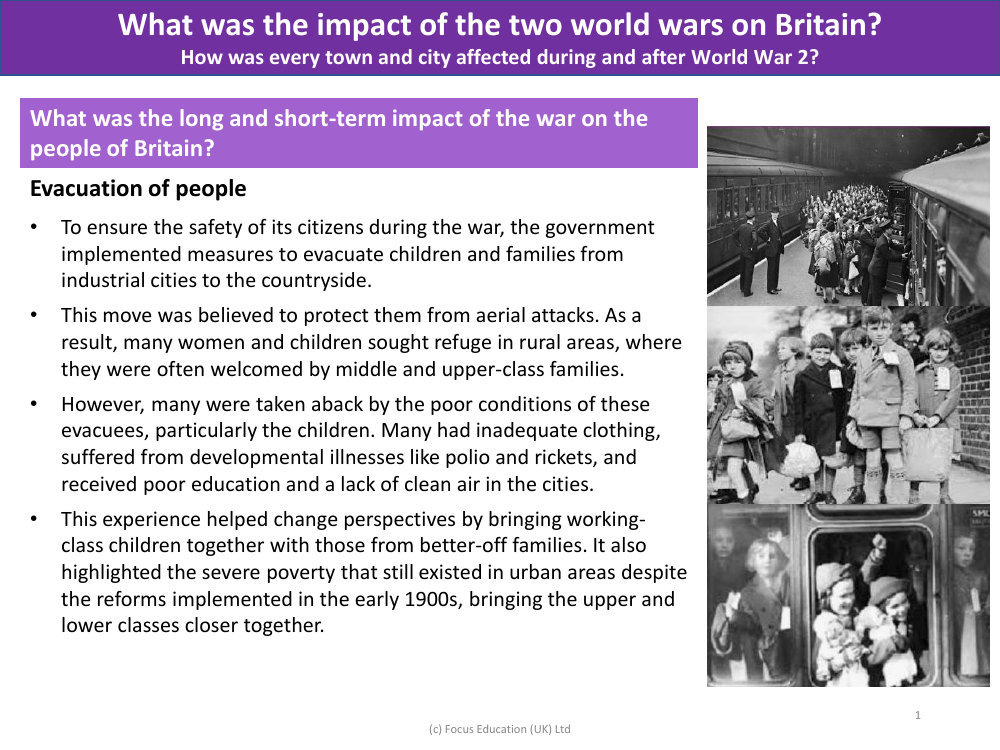
History Resource Description
The war had profound and lasting effects on the British population, with the evacuation of people being a significant aspect of the wartime experience. To protect citizens from the threat of aerial bombardment, the government orchestrated the mass movement of children and families from industrial hubs to the relative safety of the countryside. This evacuation exposed the stark contrast between social classes, as many evacuees, especially children, arrived in rural areas with inadequate clothing and suffering from illnesses like polio and rickets, indicative of the poor living conditions and lack of access to quality education and clean air in the cities. The experience of evacuation not only sought to protect lives but also served to bridge the gap between the classes, as working-class children were integrated into the lives of middle and upper-class families, shedding light on the persistent urban poverty that had not been eradicated by early 20th-century reforms.
Engaging with personal accounts and multimedia resources, students are encouraged to explore the personal narratives of those affected by evacuation. By reading stories of ex-evacuees and watching interviews with host families, pupils gain a deeper understanding of the emotional and practical realities of being an evacuee or taking one in. Classroom activities promote empathy and historical inquiry, with students discussing in pairs and groups what life might have been like for an evacuee. If possible, conversations with actual evacuees would offer invaluable firsthand insights. Preparing for such interactions requires thoughtful questioning and research into the health implications of diseases prevalent among evacuees, such as polio and rickets. These educational activities not only illuminate the impact of the world wars on Britain and its towns and cities but also foster an appreciation for the shared history and resilience of the British people during wartime.
